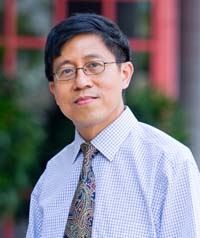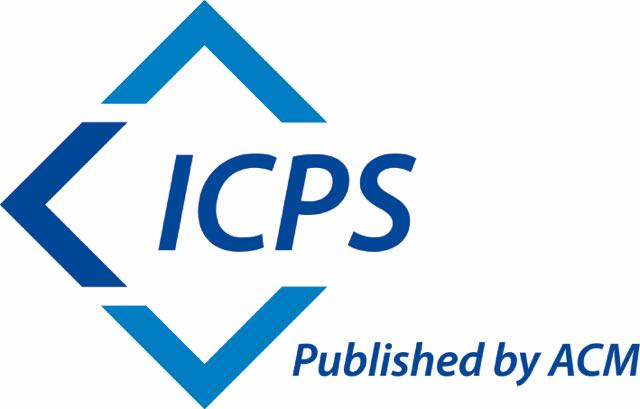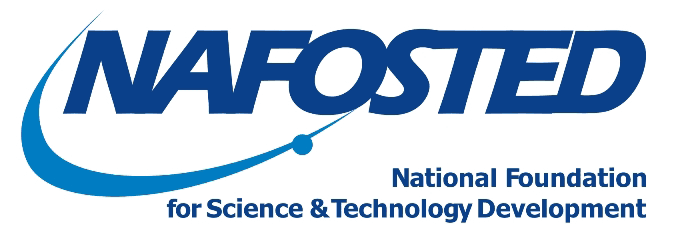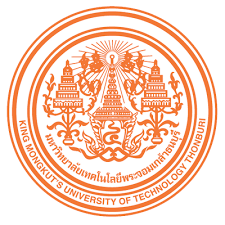


Assoc Prof Kwoh Chee KeongAssistant Chair (Graduate Studies)School of Computer Science and Engineering College of Engineering, Nanyang Technological University, Singapore Title: AI and Big Data analytics for health and bioinformaticsAbstractWith the technological advances that allow for high throughput profiling of biological systems at a low cost. The low cost of data generation is leading us to the "big data" era. The availability of big data provides unprecedented opportunities but also raises new challenges for data mining and analysis. In this talk, I will start will the concepts in the analysis of big data, specifically the AI algorithms. My group has in The Biomedical Informatics Lab (BIL) is a research Centre is the focus of the education, research and development, and human-resource training in heath informatics and bioinformatics at NTU. The mission of BIL is to provide the interdisciplinary environment and training for students and researchers to engage in leading and cutting edge research in bioinformatics, and thereby become a part of the life sciences workforce in Singapore and elsewhere. This talk, by presenting selected research activities, will provide an overview of some of the innovative and creative approaches with the application of AI in big data analytics to address the challenges and solutions in both health and bioinformatics. Biography
Dr. Kwoh Chee Keong is currently in the School of Computer Engineering since 1993. He received his Bachelor degree in Electrical Engineering (1st Class) and Master in Industrial System Engineering from the National University of Singapore in 1987 and 1991 respectively. He received his Ph.D. degrees from the Imperial College, University of London in 1995. His research interests include Data Mining and Soft Computing and Graph-Based inference; applications areas include Bioinformatics and Biomedical Engineering. He has done significant research work his research areas and published over 90 quality international conferences and over 30 journal papers. He has been often invited as a organizing member or referee and reviewer for a number of premier conferences and journals, including GIW, IEEE BIBM, RECOMB, PRIB etc. Dr. Kwoh is a member of The Institution of Engineers Singapore, Association for Medical and Bio-Informatics, Imperial College Alumni Association of Singapore (ICAAS). He has provided many service to professional bodies, and the Singapore and was conferred the Public Service Medal, the President of Singapore in 2008. Nuno Bandeira, Ph.D.Associate ProfessorDept. Computer Science and Engineering Skaggs School of Pharmacy and Pharmaceutical Sciences Title: Revealing deep proteome diversity with community-scale proteomics big dataAbstractTranslating the growing volumes of proteomics mass spectrometry data into reusable evidence of the occurrence and provenance of proteomics events requires the development of novel algorithms and community-scale computational workflows. MassIVE (http://massive.ucsd.edu) proposes to address this challenge in three stages. First, systematic annotation of human proteomics big data requires automated reanalysis of all public data using open source workflows with detailed records of search parameters and of individual Peptide Spectrum Matches (PSMs). As such, our large-scale reanalysis of tens of terabytes of human data has now increased the total number of proper public PSMs by over 10-fold to over 320 million PSMs whose coverage includes over 95% of public human HCD data. Second, proper synthesis of community-scale search results into a reusable knowledge base (KB) requires scalable workflows imposing strict statistical controls. Our MassIVE-KB spectral library has thus properly assembled 2+ million precursors from over 1.5 million peptides covering over 6.2 million amino acids in the human proteome, all of which at least double the numbers covered by the popular NIST spectral libraries. Moreover, MassIVE-KB detects 723 novel proteins (PE 2-5) for a total of 16,852 proteins observed in non-synthetic LCMS runs and 19,610 total proteins when including the recent ProteomeTools data. Third, we show how advanced identification algorithms combine with public data to reveal dozens of unexpected putative modifications supported by multiple highly-correlated spectra. These show that protein regions can be observed in over 100 different variants with various combinations of post-translational modifications and cleavage events, thus suggesting that current coverage of proteome diversity (at ~1.3 variants per protein region) is far below what is observable in experimental data. Biography
Title: Deep Learning for Food RecognitionAbstractIn multimedia, dishes recognition is regarded as a difficult problem due to diverse appearance of food in shape and color because of different cooking and cutting methods. As a result, while there is a large number of cooking recipes posted on the Internet, finding a right recipe for a food picture remains a challenge. The problem is also shared among health-related applications. For example, food-log management, which records dairy food intake, often requires manual input of food/ingredients for nutrition estimation. This talk will share with you the challenge of recognizing ingredients in dishes for recipe retrieval. Finding a recipe that exactly describes a dish is challenging because ingredient compositions vary across geographical regions, cultures, seasons and occasions. I will introduce deep neutral architectures that explore the relationship among food, ingredients and recipes for recognition. The learnt deep features are used for cross-modal retrieval of food and recipes. Biography
Chong-Wah Ngo is a professor in the Dept. of Computer Science at the City University of Hong Kong. He received his PhD in Computer Science from Hong Kong University of Science & Technology, and MSc and BSc, both in Computer Engineering, from Nanyang Technological University of Singapore. Before joining City University of Hong Kong, he was a postdoctoral scholar in Beckman Institute at the University of Illinois in Urbana‐Champaign. His main research interests include large-scale multimedia information retrieval, video computing, multimedia mining and visualization. He is the founding leader of video retrieval group (VIREO) at City University, a research team that releases open source softwares, tools and datasets widely used in the multimedia community. He was the associate editor of IEEE Trans. on Multimedia, and has served as guest editor of IEEE MultiMedia, Multimedia Systems, and Multimedia Tools and Applications. He is on the steering committee of TRECVid and ICMR (Int. Conf. on Multimedia Retrieval). He was conference co-chair of ICMR 2015, program co-chairs of ICMR 2012, MMM 2012 and PCM 2013. He also served as the chairman of ACM (Hong Kong Chapter) during 2008-2009. BiographyAbhik Roychoudhury is a Professor of Computer Science at School of Computing, National University of Singapore. Abhik received his Ph.D. in Computer Science from the State University of New York at Stony Brook in 2000. Since 2001, he has been employed at the National University of Singapore. His research has focused on software testing and analysis, software security, and trust-worthy software construction. He has been an ACM Distinguished Speaker (2013-19). He is currently leading the TSUNAMi center, a large five-year long targeted research effort funded by National Research Foundation in the domain of software security. He is also the Lead Principal Investigator of the Singapore Cyber-security Consortium. His research has been funded by various agencies and companies, including the National Research Foundation (NRF), Ministry of Education (MoE), A*STAR, Defense Research and Technology Office (DRTech), DSO National Laboratories, Microsoft and IBM. He has authored a book on "Embedded Systems and Software Validation" published by Elsevier (Morgan Kaufmann) Systems-on-Silicon series in 2009, which has also been officially translated to Chinese by Tsinghua University Press. He has served in various capacities in the program committees and organizing committees of various conferences on software engineering, specifically serving as Program Chair of ACM International Symposium on Software Testing and Analysis (ISSTA) 2016 and General Chair of ACM SIGSOFT Symposium on Foundations of Software Engineering (FSE) 2022. He is currently serving as an Editorial Board member of IEEE Transactions on Software Engineering (TSE). |
NEWS
IMPORTANT DATES
CATEGORIES
ORGANIZERS 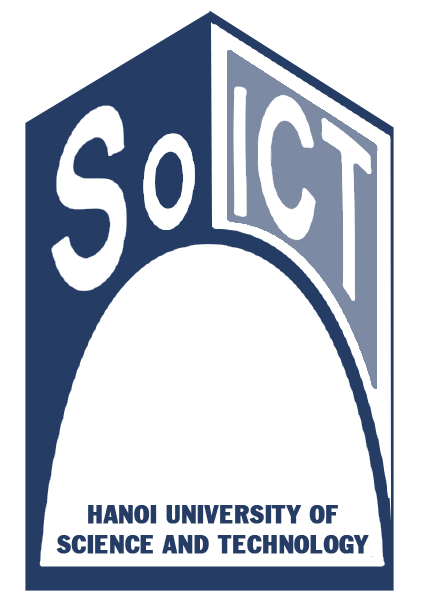 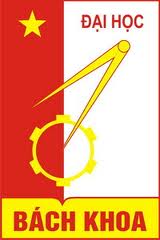
SPONSORS
|
Home | Important Dates | Call for Papers | Paper Submission | Registration | Contact Us
Copyright © CSBio2017
 Home
Home 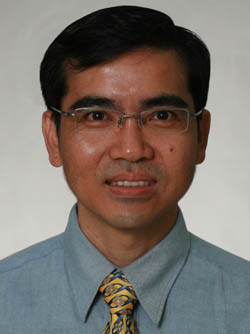
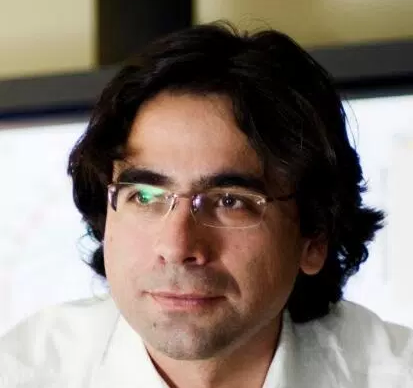 Nuno Bandeira obtained his Ph.D. in
Computer Science and Engineering
from the University of California, San
Diego, where he is now Associate
Professor with joint appointments in
Computer Science and Engineering and
in the Skaggs School of Pharmacy and
Pharmaceutical Sciences. His research
focuses on the development of algorithms for interpretation of
proteomics and metabolomics mass spectrometry data from
endogenous and digested peptides, discovery and localization of
post-translational modifications, protein-protein interactions,
sequencing of non-linear peptides with unknown amino acids and
characterization of microbial, marine, reptile and plant natural
products. As Executive Director of UCSD’s Center for
Computational Mass Spectrometry, Dr. Bandeira’s research further
extends to distributed algorithms for large scale data analysis
(ProteoSAFe), data sharing (MassIVE) and crowdsourced,
community-wide interpretation (GnPS) of all publicly available
mass spectrometry data.
Nuno Bandeira obtained his Ph.D. in
Computer Science and Engineering
from the University of California, San
Diego, where he is now Associate
Professor with joint appointments in
Computer Science and Engineering and
in the Skaggs School of Pharmacy and
Pharmaceutical Sciences. His research
focuses on the development of algorithms for interpretation of
proteomics and metabolomics mass spectrometry data from
endogenous and digested peptides, discovery and localization of
post-translational modifications, protein-protein interactions,
sequencing of non-linear peptides with unknown amino acids and
characterization of microbial, marine, reptile and plant natural
products. As Executive Director of UCSD’s Center for
Computational Mass Spectrometry, Dr. Bandeira’s research further
extends to distributed algorithms for large scale data analysis
(ProteoSAFe), data sharing (MassIVE) and crowdsourced,
community-wide interpretation (GnPS) of all publicly available
mass spectrometry data.